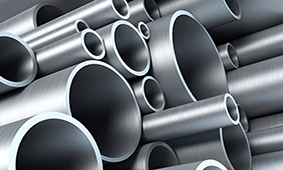
Indian steelmakers appeal to operate during lockdown

India on 24 March began a nationwide lockdown until 14 April, in order to slow the spread of the coronavirus.
India's steel ministry secretary Binoy Kumar had appealed to New Delhi yesterday to allow mills to continue to produce, supply and distribute steel and steel raw materials during the lockdown as allowed under the Essential Services Maintenance Act of 1981 that designates any businesses "dealing with the production, supply or distribution of coal, power, steel or fertilizers" as "Essential Services".
The lockdown will weigh on operations of steel mills, resulting in potential damage to plants and machinery, Kumar said.
Blast furnaces face the most complications. Blast furnaces account for about half of India's crude steel output, which was at 100.78mn t during April 2019 to February 2020.
"Sudden stoppage of blast furnaces can lead to chilling and solidifying of hot metal which is typically lying at 1,200-1,500°C inside the furnace causing permanent damage to refractories and cooling elements," said a major steelmaker based in western India.
Restarting these plants is complicated by safety hazards, and such stoppages may even pose a fire hazard, according to the steelmaker. The same steelmaker had requested that the government allow uninterrupted operations at the plant with 50pc of manpower available during the lockdown. Capacity utilisation at this plant during the lockdown is likely to be at 50pc, a senior company spokesperson said.
The steel ministry requested that no restrictions be imposed on integrated and induction or electric arc furnace (EAF)-based plants, and the movement of people and raw materials via rail, road and waterways.
Major state-owned steel mills have not shut down and are likely to continue operations as usual as much as logistics and staffing allow.
"Situation is uncertain. Supply chain is the major issue to run the plants," said managing director at Jindal Steel and Power, VR Sharma.
A south India-based state-owned mill was unconfirmed running at 60pc utilisation with a third of its workforce available.
Many non-integrated mills have idled operations after suppliers shut down and on staffing issues.
A large number of workers across industries rushed back to their hometowns last week when New Delhi announced business closures until 31 March. The number of people travelling home accelerated yesterday.
EAFs and induction furnaces, which account for nearly half of India's crude steel output, can quickly shut down and restart. Sponge iron makers that supply them have shut down, and transportation shutdowns could affect ferrous scrap flows.
Consumer sectors such as automakers, re-rollers, steel fabricators, steel component manufacturers and construction sites have already stopped operations.
India's ports are declaring force majeure, including India's largest Krishnapatnam port in Andhra Pradesh and Gangavaram port at Visakhapatnam. Adani Ports and Logistics declared a force majeure yesterday at the Mundra and Tuna ports in the western state of Gujara effective from 22 March.
The ministry also requested for mines of iron ore, coking coal, thermal coal, limestone, dolomite, manganese, chromite, sponge iron, ferro-alloys to maintain operation. These mines typically supply critical raw materials for steel making.
By Charlotte Rao


Trump weighs using $2 billion in CHIPS Act funding for critical minerals

Codelco cuts 2025 copper forecast after El Teniente mine collapse

Electra converts debt, launches $30M raise to jumpstart stalled cobalt refinery

Barrick’s Reko Diq in line for $410M ADB backing

Abcourt readies Sleeping Giant mill to pour first gold since 2014

Nevada army depot to serve as base for first US strategic minerals stockpile

SQM boosts lithium supply plans as prices flick higher

Viridis unveils 200Mt initial reserve for Brazil rare earth project

Tailings could meet much of US critical mineral demand – study

Kyrgyzstan kicks off underground gold mining at Kumtor

Kyrgyzstan kicks off underground gold mining at Kumtor

KoBold Metals granted lithium exploration rights in Congo

Freeport Indonesia to wrap up Gresik plant repairs by early September

Energy Fuels soars on Vulcan Elements partnership

Northern Dynasty sticks to proposal in battle to lift Pebble mine veto

Giustra-backed mining firm teams up with informal miners in Colombia

Critical Metals signs agreement to supply rare earth to US government-funded facility

China extends rare earth controls to imported material

Galan Lithium proceeds with $13M financing for Argentina project

Kyrgyzstan kicks off underground gold mining at Kumtor

Freeport Indonesia to wrap up Gresik plant repairs by early September

Energy Fuels soars on Vulcan Elements partnership

Northern Dynasty sticks to proposal in battle to lift Pebble mine veto

Giustra-backed mining firm teams up with informal miners in Colombia

Critical Metals signs agreement to supply rare earth to US government-funded facility

China extends rare earth controls to imported material

Galan Lithium proceeds with $13M financing for Argentina project

Silver price touches $39 as market weighs rate cut outlook

















